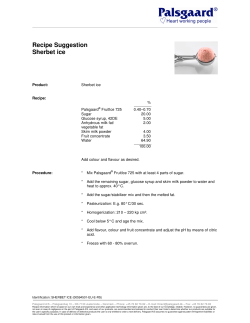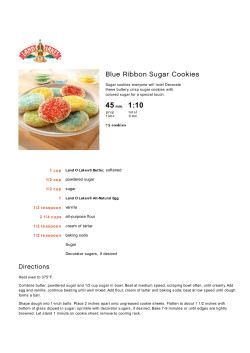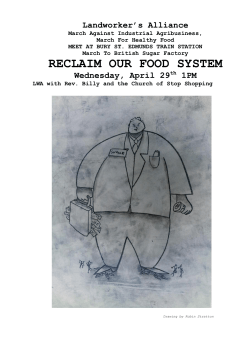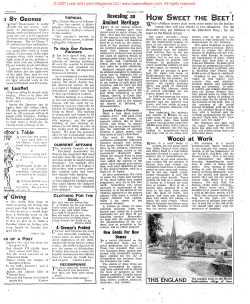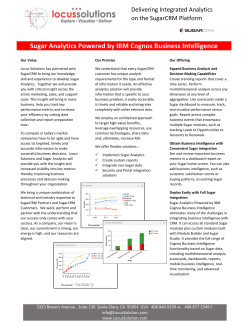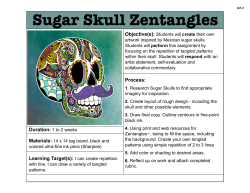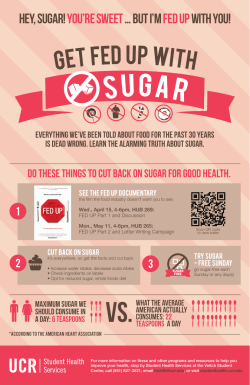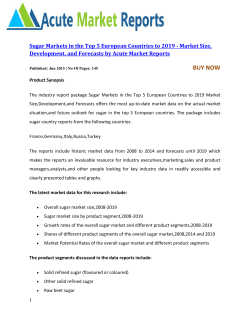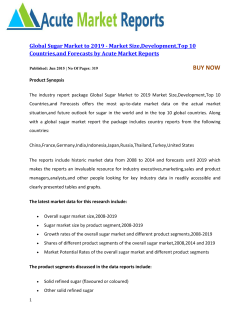
Sugar and Your Body
Sugar and Your Body Knowing more about what sugar does to your body can remind you to stick to an Eat Right plan and limit the amount of added sugar you take in. Follow the path below through the human body to learn more about sugar’s harmful effects. Show Off Those Pearly Whites First, chew your food! When you eat sugary foods, the sugar sticks to your teeth, combines with the natural bacteria in the mouth and makes an acid. This can break down tooth enamel or lead to decay and cavities. On to the Stomach and Small Intestine After you swallow, sugar-spiked food enters the stomach and spends about 15 minutes while your system begins breaking it down. Once the food enters your small intestine, it breaks down further into the sugar molecules glucose and fructose, which are absorbed into the bloodstream. Overtime For Your Organs Energy Rush, Quick Crash The Immediate Aftermath With a spike in glucose (the body’s main type of sugar in the blood) levels when the molecules enter your bloodstream, your pancreas goes into overtime trying to pump out extra insulin to handle the excess glucose. The fructose molecules are sent to the liver, where they are broken down. The extra insulin from your pancreas spreads throughout your body, which spikes energy levels. Glucose in the brain releases the chemicals serotonin and dopamine, linked with feelings of pleasure and reward. This creates the “sugar rush” sensation. But with that rush comes a swift “crash.” After your body uses all the glucose it can process, it stores the rest as body fat, while excess fructose is turned into blood fat. Without the sugar molecules, insulin and blood glucose levels abruptly drop. This leads to the groggy and tired feelings known as a “sugar crash.” Don’t be tricked into eating more sugar-filled foods for a boost! This puts your body back through the harmful cycle and doesn’t provide nutrition or lasting energy. The Long-term Downside of Too Many “Sugar Highs” Aside from the crash and burn after eating foods with added sugar, excess sugar intake can lead to many dangerous health conditions. These health risks include a lowered immune system, reduced nutrient absorption, tooth decay, increased stored body fat, obesity, diabetes, heart disease and even cancer. Though it tastes good at first, the sour side of added sugar greatly outweighs the sweet. Limit your intake of added sugar by reading food labels and choosing natural foods like fruit when your sweet tooth strikes. 01CR1064 03/12 Blue Cross and Blue Shield of Louisiana is incorporated as Louisiana Health Service & Indemnity Company and is an independent licensee of the Blue Cross and Blue Shield Association.
© Copyright 2025
